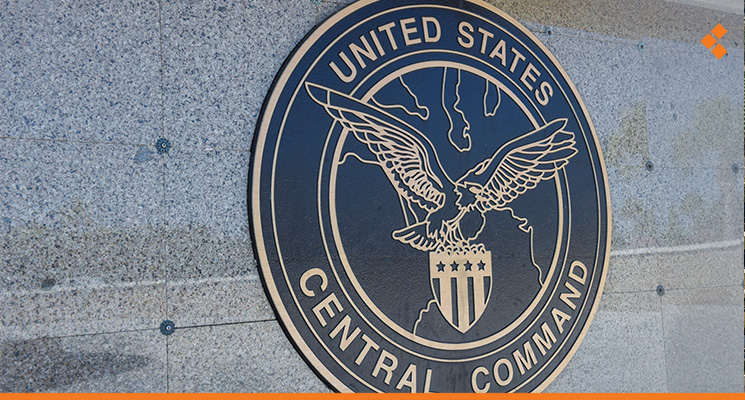U.S. officials believe they have successfully deterred Iran-backed militias in Iraq and Syria from attacking U.S. forces, noting no attacks for over a month. This development coincides with U.S.-Iraq discussions on potentially reducing the U.S. military presence in Iraq, which seems to have influenced the decision of pro-Iran groups to pause their hostilities. However, the strategies that deterred militias in Iraq and Syria may not be effective against the Houthi movement in Yemen, which continues its assaults on Red Sea shipping. The Houthis, less influenced by Iranian and domestic pressures compared to Iraqi and Syrian militias, pose a unique challenge.
Since the October 7 attack by Hamas on Israel, efforts to prevent the escalation of the Gaza war and deter attacks by Iran-supported groups across the region have seen mixed results. The primary goal of Iran and its allies, including forcing U.S. military withdrawal from the region and pressuring Israel, remains unchanged. In response to over 180 attacks by Iran-backed militias, the U.S. conducted significant retaliatory strikes in Iraq and Syria, leading to a temporary cessation of militia assaults on U.S. bases. These actions highlight the complex dynamics of Iranian influence and the varying responses of proxy groups to U.S. and diplomatic pressures.
Syria’s Al-Hol camp: child inmates and false identities
In another story, AFP published a report on Al-Hol Camp, run by US-backed Kurdish-led Syrian Democratic Forces (SDF). Its population spiked at more than 70,000 as the coalition began tightening its grip on the last IS holdout in Baghouz late in 2018.
Iraqis have always been “the dominant nationality” in the camp, with their numbers at one time reaching 30,000, according to Doctors Without Borders.
At its height, 11,000 “foreign” women and children — that is non-Syrian or Iraqi — were held there.
After the defeat of the “caliphate” in March 2019, countries across the world slowly began repatriating their nationals. Many Europeans were transferred to Roj, a smaller and better-kept camp close to the Turkish border that today holds 2,500 people, more than 2,140 of them foreign.
The sprawling 320-hectare al-Hol holds more than 43,000 people from 47 countries including France, Sweden, the Netherlands, Russia, Turkey and Tunisia — 21,500 of them children, according to the latest figures.
Iraqis are the biggest group (20,144), followed by Syrians (16,710). Two thirds of the 6,612 “foreigners” are children under 17, according to the camp administration.
13-year-old brides
Kurdish security forces and the SDF guard the camp, with a Kurdish civil administration overseeing the camp. Dozens of United Nations agencies and international and local NGOs provide health, water, sanitation, education and protection services.
But the camp’s overall management is handled by the US group Blumont paid for by the US State Department, with France also funding some humanitarian assistance and improvements to the infrastructure.
The camp is divided into two parts. Syrians and Iraqis live in the main camp, with “foreigners” held in the high-security “annex” that is cut off from the main camp.
Camp officials say many of the foreigners have not revealed their nationalities or given false ones.
Many marriages in the main camp — where some 3,000 men live — are to minors, including girls as young as 13, according to humanitarian workers.
Since the Kurdish-led administration does not recognise child marriage, they are not registered, nor are their children.
Two girls point to the sky — a gesture often used by Islamic State — in the al-Hol camp in Syria where the families of IS fighters are held
Many men take second wives. These marriages are also not recognised. As a result, the camp “bursts with unregistered children”, a humanitarian worker said.
Jordan army detects suspicious aerial movement near Syria border
The Jordanian army said on Monday its air defence radar system had detected suspicious aerial movements from an unknown source along the border with Syria, which a regional security source said were most probably missiles fired by pro-Iranian militias from Iraq, Reuters reported.
Jets believed to be Jordanian had been heard hovering over the Jordanian city of Irbid and areas near the border crossing with Syria, witnesses said.
The army said an air force squadron had flown to ensure the airspace was not under any threat. It did not say from where the movements came.
“The airforce responded to an alert of radar systems that monitored aerial movements whose source is not known,” the army statement said.
In January three U.S. service members were killed and as many as 34 wounded after a drone attack on a U.S outpost in Jordan that Washington linked to Iranian-backed militants.
Jordan has requested Patriot air defence systems from Washington, saying it fears being caught in the crossfire if the war in Gaza pulls in Iran and its well-armed regional militias on the kingdom’s borders.
Another regional security source said two missiles that came from the direction of the Iraqi border in an area where pro-Iranian Shi’ite militias have a presence were intercepted.
“Regardless whether there were drones or missiles that were intercepted or fired or not, the risk of Jordan being caught in the crossfire can only increase if the war continues and expands,” Saud Al Sharafat, former brigadier-general in Jordan’s General Intelligence Directorate, said.


